A 30-year-old cab driver from Bihar dies after a violent altercation near Udyog Vihar Phase 4; police register murder case, arrest hunt underway as safety of night-shift workers comes under spotlight.
By Sarhind Times NCR Bureau
Gurugram | October 19, 2025
A night that began with laughter around a tea stall in Udyog Vihar Phase 4 ended in tragedy when a 30-year-old cab driver, identified as Vikas Kumar, was brutally beaten to death by a group of men following an altercation, allegedly triggered by alcohol consumption.
The incident occurred late Friday night, just past 11:45 p.m., near Plot 124, Udyog Vihar Phase 4, an area bustling with small offices, warehouses, and food kiosks that remain active round-the-clock catering to Gurugram’s BPO and logistics workforce.
According to the Gurugram Police, a case of murder (Section 302 IPC) has been registered at the Udyog Vihar Police Station against two identified suspects and several unknown associates. No arrests had been confirmed at press time, though police said raids were ongoing across Gurugram and adjoining Delhi-NCR.
The Fatal Night: A Fight Gone Too Far
Preliminary investigations reveal that the altercation began around a roadside tea shop near the main Udyog Vihar circle. Vikas Kumar, originally from Khagaria, Bihar, worked for a cab aggregator and had just dropped a client near the DLF Cyber City area.
Eyewitnesses told Sarhind Times that Vikas stopped for tea with another driver when an argument broke out with a group of men who appeared intoxicated.
“It started with words, then shoving, then bottles flying,” said Raman Singh, a nearby kiosk owner. “Within minutes, one of them hit Vikas on the head with an iron rod.”
When bystanders called for help, the attackers fled on motorcycles, leaving the victim unconscious. Locals rushed him to Civil Hospital, Sector 10, where doctors declared him brought dead. Police later confirmed that blunt-force trauma was the cause of death.
The Victim: A Migrant’s Life in a Fast City
Vikas Kumar had been living in Sirhaul village for nearly three years, driving cabs for a ride-hailing company. Friends described him as hardworking, soft-spoken, and the primary breadwinner for his family of five back in Bihar.
“He sent money home every week,” said Prakash Mandal, a fellow driver. “He wanted to bring his wife and two daughters here once he saved enough. He never fought with anyone.”
Vikas was known to work late-night shifts to earn extra incentives, ferrying corporate employees returning from offices in Cyber Hub.
His death has reignited a longstanding debate over worker safety during night hours, particularly in industrial and tech zones that operate beyond midnight.
Police Investigation: CCTV and Crime Trail
Gurugram Police have formed three teams to trace the suspects, led by ACP (DLF) Vijay Pratap Singh.
CCTV footage from nearby factories, ATMs, and security gates is being examined to identify the accused.
“We have recovered visuals showing two men on a motorcycle leaving the spot moments after the incident,” confirmed ACP Singh.
“The suspects appear to be locals familiar with the area. We are confident of arrests within 48 hours.”
Forensic experts have collected blood samples, broken glass pieces, and a rusted metal rod from the scene. DNA tests will confirm whether the rod was the murder weapon. Police are also verifying whether the accused had prior criminal records or gang affiliations.
Night-Shift Safety Concerns
The murder has sparked outrage among drivers’ unions and gig worker groups who allege that the Udyog Vihar industrial cluster, despite housing hundreds of night workers, lacks adequate patrolling, lighting, and CCTV coverage.
“Our members drive late nights for corporate staff but have no safety cover,” said Suresh Chauhan, president of the Haryana App Cab Union.
“There are no police posts open after 10 p.m. in this area. It’s a ghost town until something terrible happens.”
A recent RTI filed by the Drivers’ Welfare Forum revealed that Udyog Vihar averages 15–18 night-time assault or robbery cases annually, though most go unreported.
Local residents confirm the pattern. “After 11 p.m., the tea stalls are the only light you see. Everything else is dark,” said Rafiq Ahmed, who runs a small repair shop nearby.
Industrial Nightscape: The Flip Side of Prosperity
Udyog Vihar, once Gurgaon’s pride as a model industrial estate, has evolved into a 24-hour economic zone, housing call centres, garment exporters, and logistics companies.
Yet, behind the steel-and-glass façade lies a patchwork of poorly lit lanes, half-built walls, and informal eateries that double as rest spots for drivers and guards.
Urban planners argue that such zones require urban night-safety protocols similar to international industrial cities — including visible police booths, women’s helplines, and panic-button infrastructure.
“The city’s growth has outpaced its governance,” noted Prof. Anjali Kaur, sociologist at Delhi University. “Thousands of migrant workers fuel this economy but remain invisible once tragedy strikes.”
Government & Civic Response
The Deputy Commissioner of Gurugram, Nishant Kumar Yadav, convened an emergency meeting on Saturday afternoon with police, MCG, and HSIIDC officials to review night security measures in industrial belts.
“We are deploying additional patrol units between 10 p.m. and 5 a.m. across Udyog Vihar phases 1 to 5,” said Yadav.
“All roadside stalls will be instructed to close by 11 p.m. and install CCTV cameras. Employers operating night shifts must ensure escort vehicles for women staff.”
The Haryana Labour Department has also announced an audit of cab aggregators and transport contractors to check whether they provide accident insurance and emergency assistance to drivers.
Migrant Voices: Between Fear and Necessity
The tragedy has sent shockwaves through Gurugram’s migrant driver community — estimated at over 40,000 workers — who rely on odd hours for maximum earnings.
“We can’t afford to stop working at night,” said Dinesh Yadav, a cabbie from Jharkhand. “Daytime business is too crowded. But after this murder, many of us are scared to park or rest anywhere.”
Cab aggregators say they are reviewing safety SOPs. A spokesperson from Ola told Sarhind Times that the company is “extending support to police and the victim’s family” and “reviewing night-patrol collaborations with local law enforcement.”
Yet, drivers allege that help rarely arrives in time when violence occurs on the street.
“Our panic buttons work only if someone is alive to press them,” remarked one driver grimly.
Family’s Plea for Justice
In Khagaria, Bihar, the victim’s wife Poonam Devi received the news through a friend’s call at 2 a.m. Saturday.
“He promised to come home after Diwali,” she said tearfully over phone. “Now I only want those men punished.”
The Gurugram Police Commissioner has assured the family of a swift investigation and financial assistance under the Victim Compensation Scheme. The body was sent for autopsy at PGIMS Rohtak before being transported to Bihar for last rites.
Social groups including the Bihar Association of Gurugram have volunteered legal aid and logistics for repatriation.
Crime Pattern: A Larger Problem
According to NCRB data (2024), Gurugram reported 402 cases of assault and 41 cases of culpable homicide, many arising from drunken brawls near roadside dhabas and industrial zones.
The trend underscores how alcohol access, poor policing, and socio-economic stress converge into urban violence.
“Night-time economy has grown, but night-time governance hasn’t,” observed retired IPS officer R.C. Bhardwaj.
“Udyog Vihar, Manesar, and Sohna Road all need fixed police kiosks and body-camera patrols.”
Voices for Reform
Civil society groups are demanding a dedicated Night Safety Commission for NCR towns like Gurugram, Noida, and Faridabad — cities with the highest density of gig and industrial workers.
Urban safety consultant Dr. Vineeta Ghosh suggests a “Streetlight Index” to grade areas based on illumination and surveillance, much like air-quality or cleanliness ratings.
Meanwhile, local artists are planning a candle vigil for the victim outside the Udyog Vihar police station on Sunday evening — a small gesture in a city where light often hides shadows.
Editorial Perspective: When Cities Forget Their Workers
Vikas Kumar’s death is more than a crime statistic — it is a mirror to India’s fastest-growing city, where the lives of those who serve it remain expendable.
In Gurugram’s rush for corporate glitter, the night belongs to the unseen — drivers, guards, cleaners — who navigate dark alleys so others may reach home safe.
If this tragedy pushes authorities to illuminate those forgotten streets, perhaps his death will not be in vain.
The city owes him not condolences, but reform.
#Gurugram #CrimeNews #UdyogVihar #JusticeForVikas #HaryanaPolice #UrbanSafety #SarhindTimes
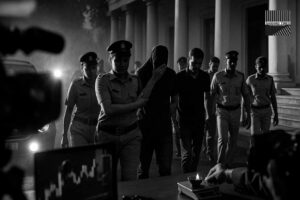

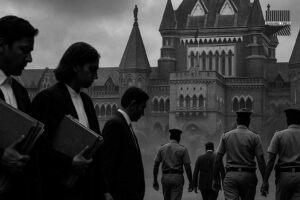

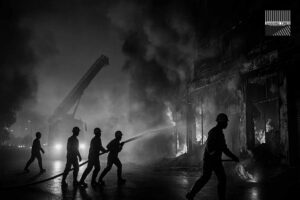






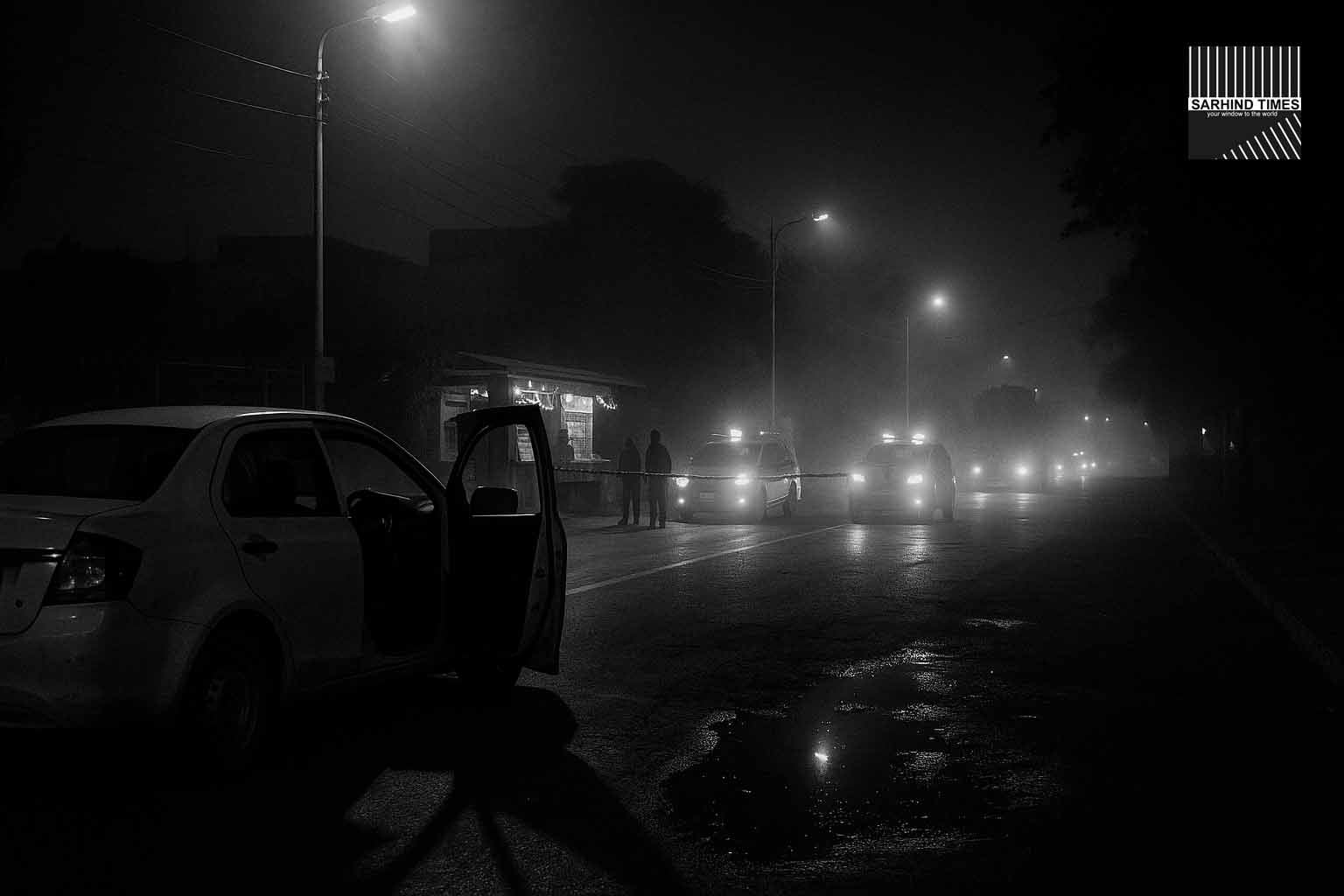
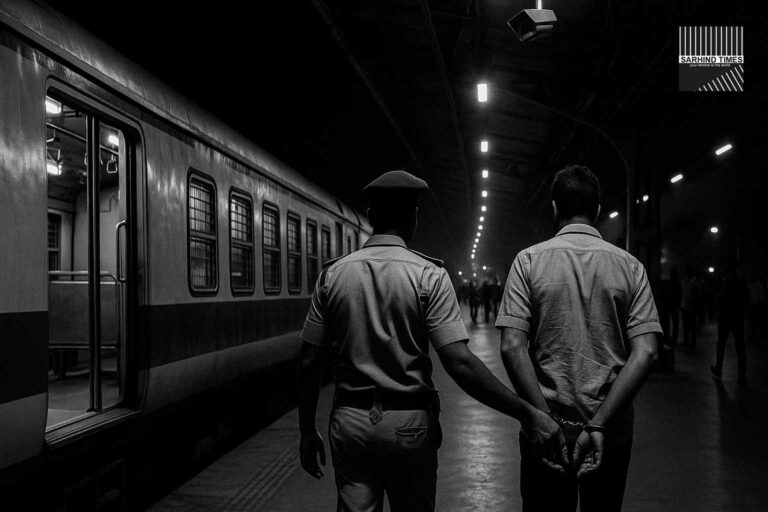

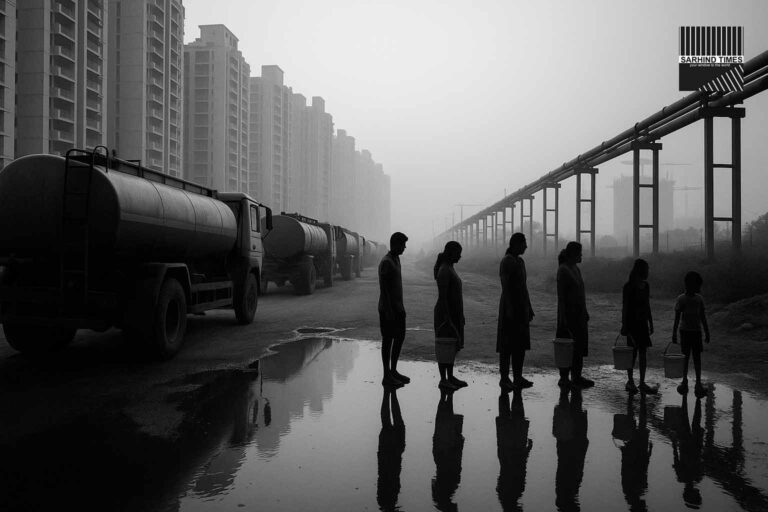
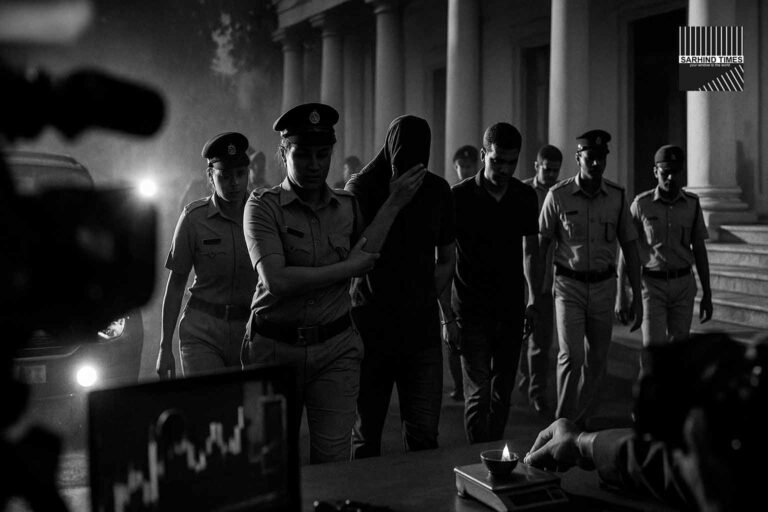
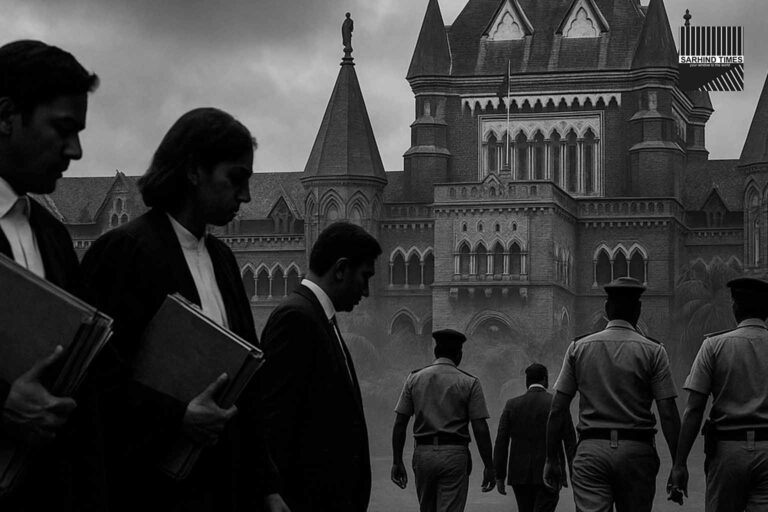


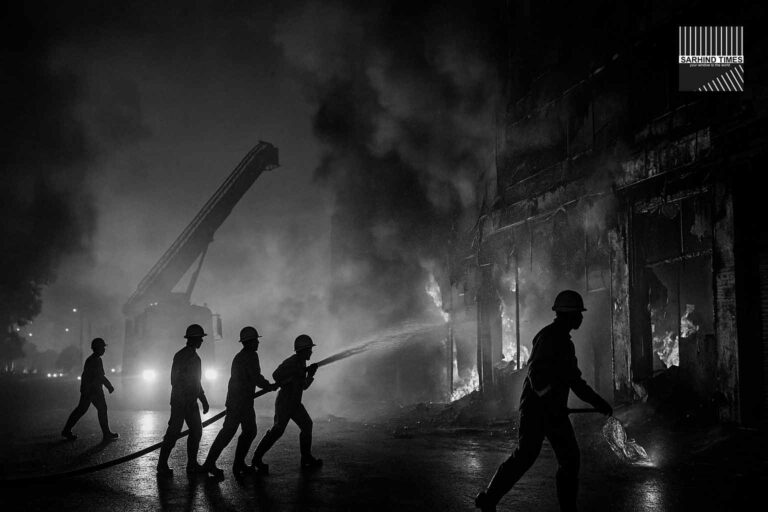

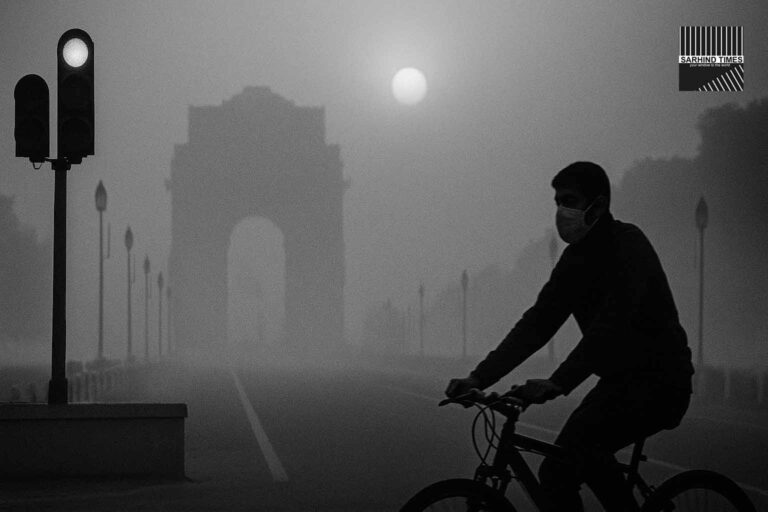
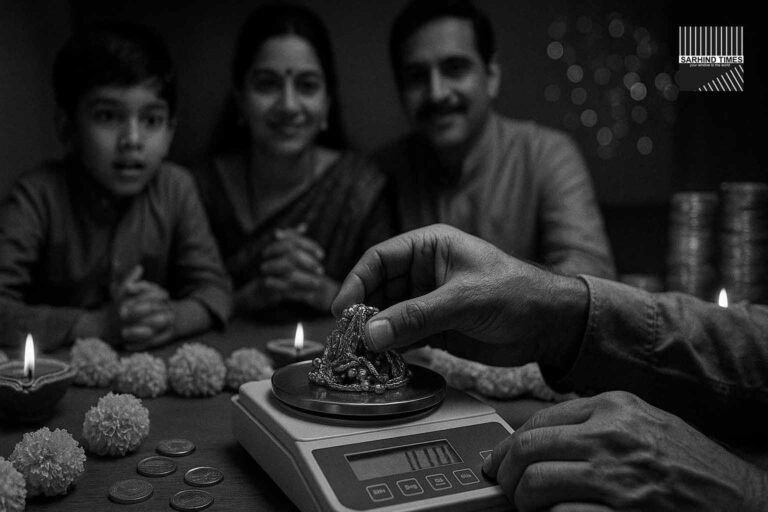
+ There are no comments
Add yours